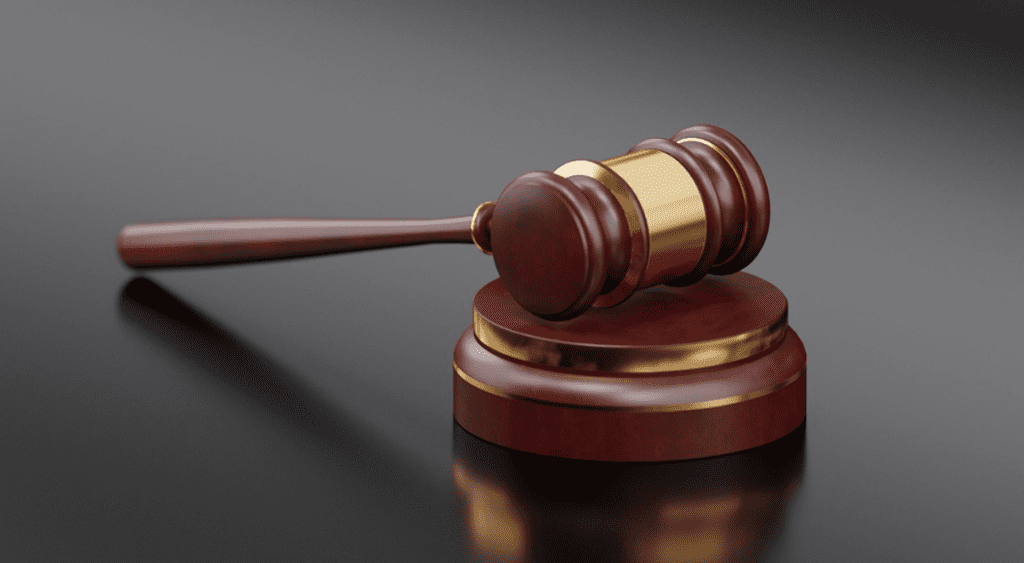Bus accidents can be devastating, resulting in serious injury or death. Those involved in a bus accident may face not only physical suffering, but also considerable financial, emotional, and psychological hardships.
As such, it is important to understand the legal implications of a bus accident, as well as the types of injuries commonly seen in these types of accidents and the medical treatments available.
This section will explore the common types of bus accident injuries, the legal considerations in bus accident claims, how to seek compensation for bus accident injuries, and how to seek support and rehabilitation.
Common Types of Bus Accident Injuries
Bus accident injuries can range from minor cuts and bruises to serious head injuries and spinal cord damage that can lead to paralysis.
Head injuries and concussions, fractures and broken bones, soft tissue injuries, spinal cord injuries and paralysis, and psychological trauma and emotional distress are some of the most common types of bus accident injuries.
In many cases, victims of bus accidents can suffer serious physical, emotional, and psychological effects that can lead to ongoing medical treatment, emotional distress, and financial strain.
Head injuries and concussions
Traumatic brain injuries, such as concussions, can be a result of a traumatic event and can have long-term effects on an individual’s mental and physical well-being. Individuals involved in bus accidents may suffer such a head injury, especially those who are not wearing a seatbelt.
Common signs of a concussion can include headache, dizziness, confusion, difficulty concentrating, ringing in the ears, nausea, and vomiting. Concussions can lead to long-term physical and mental health complications, such as memory problems, difficulty with concentration and problem-solving, and changes in personality or behavior.
Individuals who have suffered a concussion may also be at an increased risk for developing neurodegenerative illnesses, such as Alzheimer’s or Parkinson’s disease. It is important to be aware of the risks of head injuries and to seek medical attention immediately after a bus accident if any symptoms of a concussion are present.
Fractures and broken bones
Fractures and broken bones can occur as a result of a traumatic event, such as a bus accident, and may require medical attention and a long period of recovery.
Some of the consequences associated with these types of injuries may include:
- Ongoing pain
- Loss of mobility
- Difficulty with daily activities
- Financial hardship due to medical bills and lost wages.
It is important to seek medical attention and to keep track of all medical records if a person experiences these types of injuries in a bus accident.
Soft tissue injuries (cuts, bruises, sprains)
Soft tissue injuries, such as cuts, bruises, and sprains, can be common sequelae of a traumatic event. Soft tissue injuries, also known as contusions, occur when there is a direct blow to the body, and can cause a wide range of injuries.
Cuts occur when the skin is broken, and can range from small scrapes to deep lacerations. Bruises are caused by a blunt trauma to the skin, and appear as a discoloration of the skin caused by the leakage of blood from broken blood vessels.
Sprains are caused by the stretching or tearing of ligaments, and are usually caused by twisting or overstretching a joint or muscle. All of these soft tissue injuries can be painful and have the potential to cause long-term disability if not treated properly.
Treatment for soft tissue injuries can include ice, rest, elevation, compression, and physical therapy. For more severe injuries, surgery may be required.
Spinal cord injuries and paralysis
Spinal cord injuries can lead to full or partial paralysis, significantly impacting a person’s quality of life.
The consequences of a spinal cord injury are wide-ranging and can include:
- Physical:
- Loss of sensation or motor functions
- Loss of bowel and bladder control
- Loss of sexual function
- Mental:
- Anxiety and depression
- Difficulty with concentration
- Reduced self-esteem
The effects of a spinal cord injury may have a negative effect on the patient’s physical, psychological, social, and psychological well-being.
The financial costs associated with treatment and long-term care can also be significant.
Psychological trauma and emotional distress
The psychological trauma and emotional distress caused by serious injuries can have far-reaching and long-term effects on an individual’s overall wellbeing.
Psychological trauma may manifest in the form of post-traumatic stress disorder (PTSD), depression, anxiety, and other mental health issues.
After a serious injury, victims may experience feelings of guilt, shame, fear, anger, and grief.
These emotions can lead to difficulties with personal relationships and create a sense of alienation from the community.
Victims may also develop feelings of helplessness, lack of control, and a lack of trust.
These psychological issues may be further exacerbated by financial and legal struggles associated with the accident and the ensuing insurance claims process.
Victims may benefit from counseling and other forms of psychotherapy to cope with their emotional distress.
Seeking Immediate Medical Attention
The importance of seeking immediate medical attention after a bus accident cannot be understated.
Following an accident, healthcare professionals should conduct a thorough assessment of injuries, and any associated treatment should be documented in medical records.
To ensure the validity of any claims, it is essential to maintain evidence of medical care received after the accident.

Importance of prioritizing medical care after a bus accident
Following a vehicular incident, it is essential to prioritize medical attention to ensure health and safety of those involved.
After a bus accident, for example, there may be a wide range of injuries sustained by the passengers, which may range from minor to life-threatening.
If medical attention is not sought out immediately, the severity of injuries can worsen and lead to more serious health complications.
Additionally, the overall recovery process can be delayed, resulting in a longer healing time and a more costly medical bill.
Therefore, it is important to prioritize medical care after a bus accident in order to reduce the severity of injuries and limit the amount of time needed to make a full recovery.
Assessment and treatment of injuries by healthcare professionals
Healthcare professionals are required to assess and treat any injuries sustained from a vehicular incident in order to ensure the health and safety of those involved.
This includes bus accidents, which often result in severe trauma and the need for immediate medical attention.
Medical personnel will first assess the injured individuals to determine the severity of their injuries and the best course of treatment.
This assessment may include taking vital signs, neurological tests, and evaluating the presence of any external or internal injuries.
Once the assessment is complete, medical personnel will provide appropriate treatment, ranging from basic first aid to more complex medical interventions.
In addition, a healthcare professional may recommend medical follow-up visits or refer the individual to a specialist for further medical care.
It is important for healthcare professionals to accurately assess and treat any injuries sustained in a bus accident in order to reduce the risk of long-term adverse health effects.
Documenting medical records and maintaining evidence
Accurately documenting medical records and maintaining evidence related to vehicular incidents is essential for providing effective and timely treatment to those involved.
In the event of a bus accident, healthcare professionals must be aware of best practices for documentation and evidence preservation. This includes recording any and all information related to the patient’s condition, treatments, and recovery process, as well as collecting and preserving evidence from the scene of the accident.
This evidence may include original police reports, photos, video, or witness statements. Keeping accurate and organized records is crucial in helping healthcare professionals to provide the best possible care to bus accident victims and to protect the interests of all parties involved.
Legal Considerations in Bus Accident Claims
Bus accident claims may involve complex legal considerations, such as determining liability and negligence in bus accidents, understanding statutes of limitations and filing deadlines, and hiring an attorney experienced in bus accident claims.
The legal ramifications of bus accident claims depend on the specific facts of each case and can be difficult to navigate.
Therefore, it is important to understand the legal process and how it can impact the outcome of a bus accident claim.
Determining liability and negligence in bus accidents
Determining who is responsible and at fault for a transportation incident can be a complex and time-consuming process. When it comes to bus accidents, the liable party is usually determined based on the concept of negligence.
Negligence is based on the idea that an individual or entity failed to act in a reasonable or responsible way, and this failure resulted in harm or injury. To establish negligence in a bus accident:
- The plaintiff must prove that the defendant owed them a duty of care
- The plaintiff must show that the defendant breached this duty of care
- The plaintiff must show that the breach of the duty of care was responsible for their injury or financial losses.
Statutes of limitations and filing deadlines
The timely filing of a claim is essential to protect one’s legal rights in the event of a bus accident, and failure to act within the applicable statute of limitations may result in the denial of a rightful claim. Statutes of limitations are laws that set a limit on the amount of time that a person has to file a claim for an injury or damage sustained in a bus accident. Depending on the jurisdiction, the time limit may range from one to six years. Generally, a statute of limitations begins to run from the date of the accident, but it can vary depending on the type of claim and the state in which the claim is brought.
| Time Limit | Jurisdiction |
| 1 year | State A |
| 2 years | State B |
| 6 years | State C |
Hiring an attorney experienced in bus accident claims
It is highly recommended to enlist the services of an attorney well-versed in the complexities of bus accident claims in order to maximize the chances of a successful outcome.
Seeking out an experienced lawyer can be advantageous in a number of ways:
- An attorney can provide guidance throughout the entire process of filing a claim.
- They can ensure that all the necessary paperwork is completed on time and accurately.
- They can also provide advice on how to respond to an insurance company or other parties involved in a bus accident.
Having an experienced attorney on your side can make it easier to navigate the complexities of a bus accident claim and maximize your chances of receiving a favorable outcome.
Compensation for Bus Accident Injuries
Compensation for bus accident injuries can be complex and overwhelming.
It is important to understand the types of compensation available, including medical expenses and ongoing healthcare costs, lost wages and income, and pain and suffering damages.
Knowing the types of compensation available and how to pursue them is essential for those who have been injured in a bus accident.

Understanding the types of compensation available
Having experienced a tragedy, victims of a traumatic event may be entitled to certain forms of recompense.
When it comes to bus accidents, those injured can often seek compensation for damages, medical bills, lost wages, and pain and suffering.
Depending upon the nature of the accident and the extent of the damage, the amount and types of compensation may vary.
Generally, compensation includes medical costs, lost wages, property damage, and mental anguish.
Victims of bus accidents may also be able to claim punitive damages if a party is found to be grossly negligent.
Victims may also be able to seek compensation for lost earning capacity, if they are unable to return to the same job or wage due to the accident.
Additionally, families of victims who lost their lives in a bus accident may be able to seek wrongful death compensation.
While no amount of money can replace a loved one, compensation can help to cover medical bills and other expenses related to the accident.
Medical expenses and ongoing healthcare costs
When looking at bus accident injuries and claims, it is important to consider the medical expenses and ongoing healthcare costs associated with them. Depending on the severity of the injury, medical costs can range widely.
In addition to these costs, there may be ongoing healthcare costs associated with the injury, such as physical therapy, psychological counseling, or other treatments necessary for recovery. In some cases, these costs may be covered by a health insurance provider, but in other cases, the injured party may need to find other ways to cover these costs, such as through a lawsuit against the responsible party.
It is important to understand the full extent of medical expenses and ongoing healthcare costs associated with an injury in order to determine the best course of action for pursuing a claim or lawsuit.
Lost wages and income
The loss of wages and income resulting from a serious injury can have a significant and long-lasting impact on an individual’s financial situation.
Lost wages and income can include wages and salary, bonuses, commissions, and other forms of income that are lost due to the inability to work due to the injury.
In addition, individuals who have been injured may be unable to obtain new employment because of the injury.
This can lead to long-term financial hardship for the injured individual.
As such, individuals who have been injured in an accident should be aware of their legal rights, including the right to seek compensation for lost wages and income.
Pain and suffering damages
Pain and suffering damages are a form of compensation that may be sought by those who have sustained an injury resulting from an incident.
This form of legal compensation is typically awarded to those who have endured physical, mental, or emotional anguish from the incident.
Pain and suffering damages can include but are not limited to:
- Physical pain and discomfort
- Loss of ability to engage in activities previously enjoyed
- Loss of companionship and support
- Mental anguish and emotional distress.
Seeking Support and Rehabilitation
Rehabilitation and support following a bus accident are essential for both physical and psychological recovery.
Accessing psychological counseling and support groups may provide psychological relief, while physical therapy and rehabilitation can help to restore physical health.
Lastly, advocating for necessary medical treatments and accommodations can ensure that victims of the accident receive the best possible care.
Accessing psychological counseling and support groups
Accessing psychological counseling and support groups is a vital step in the process of managing long-term effects of trauma.
Psychological counseling can help survivors manage the mental and emotional impacts of a bus accident, such as stress, anxiety, and depression.
Support groups can provide survivors with a safe space to share their experiences with people who can relate to their struggles, and help individuals gain strength and resilience.
Furthermore, counseling and support groups offer survivors an opportunity to explore the trauma in a non-threatening environment and to process their emotions in a healthy way.
By providing emotional and psychological support, counseling and support groups can be an essential part of the trauma recovery process.
Physical therapy and rehabilitation for physical injuries
After experiencing physical trauma, physical therapy and rehabilitation can be an effective means of restoring physical functioning and aiding in the healing process.
Through physical therapy, individuals can find relief from pain, improve their range of motion, strengthen muscles, and improve coordination. A physical therapist may also provide education about how to prevent further injury, as well as providing advice on how to maintain physical fitness.
Common treatments used in physical therapy and rehabilitation may include:
- Stretching exercises
- Low-impact aerobic activities
- Strength training
- Hot and cold therapy
- Electrical stimulation
Advocating for necessary medical treatments and accommodations
In order to ensure adequate medical care and accommodations for those recovering from physical injuries, it is important to advocate for necessary medical treatments.
This includes advocating for medical treatments that are appropriate for the individual’s recovery, as well as any necessary accommodations that may be needed for their recovery process.
This can include advocating for things such as additional physical therapy sessions, access to assistive devices or equipment, or modifications to their home or workplace environment that may be necessary for their recovery.
Advocacy for necessary medical treatments and accommodations can help ensure that individuals who have been injured in a bus accident are able to receive the best care possible and have their needs met during the recovery process.
Conclusion
Bus accidents can be a traumatic experience, resulting in serious injuries. Victims of such accidents may be entitled to compensation for their losses, including medical expenses, lost wages, and pain and suffering.
To ensure that victims receive the full amount of compensation they are due, it is important to seek the advice of a personal injury attorney to understand their legal rights and options.
Furthermore, victims should seek medical attention, as well as professional support and rehabilitation to help them cope with their injuries and return to everyday life.
It is essential that victims of bus accidents take the necessary steps to protect their rights and receive the compensation they deserve.


